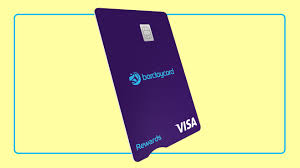Today, as living costs soar, learning top budgeting tips is key for UK homes. A solid household budget in the UK is vital to manage money well. It brings control and security.


Barclaycard
Knowing how to budget lets you save smartly. It helps with shared costs, prevents extra debt, and achieves big financial aims.
By adopting the best methods, you can better spend each pound. This supports your financial well-being.
Anúncios
Understanding the Importance of a Household Budget
A household budget is key for successful money management. It lets families track their income and what they spend. Making a budget also highlights spending trends and spots for improving. Budgets are crucial for preparing for unexpected expenses and reducing money worries.
Anúncios
Experts say a good budget prevents aimless spending, which can harm financial health. It’s the starting point for reaching big goals like buying a home or planning for later life. A systematic approach to managing outgoings encourages better money habits and ensures wealth growth over time.

Getting Organised: The First Step to Budgeting
Starting with organisation is key to effective budgeting. Families should gather important financial documents. This helps understand their financial situation clearly.
This initial step is crucial for a precise income estimate. It’s needed for a solid household budget.
Gather Necessary Financial Documents
To start, compile important financial documents, including:
- Bank statements from the past few months
- Recent credit card bills
- Details regarding savings and investments
By gathering all documents, families can see their spendings, debts, and savings. This creates a true financial picture.
Estimate Your Income Sources
Next, it’s essential to estimate all possible income sources, such as:
- Primary salary from employment
- Freelance work or side jobs
- Any rental income or investments
An accurate estimation of income is crucial. It ensures families know their total earnings. This is vital for a budget that works.
Calculating Your Income Accurately
To budget effectively, you need to calculate your income accurately. Knowing your net income is key. It shows how much money you have for needs and wants. In this part, we’ll guide you on figuring out your net income. This involves deductions and extra income sources.
Understanding Net Income and Deductions
Correctly figuring out your net income involves looking at deductions. These cover taxes, student loans, and pension contributions. Adding these up gives a real sense of what you earn each month. This knowledge is vital for wise budgeting and spending choices.
Incorporating Additional Income Streams
Adding extra income sources can help many families. Think about part-time work, freelancing, or investments. Checking all possible income helps you see your financial situation fully. Continuously update your income calculations. It shows the real money available for your budget, adjusting for financial changes.
Identifying Essential and Non-Essential Expenses
Understanding what you really need and what you can live without is key to good budgeting. This helps families plan their spending better.
Categories of Essential Spending
Essential expenses are things you must have to live day to day. These usually cover:
- Mortgage or rent payments
- Utilities such as electricity and water
- Groceries for food and household supplies
- Childcare and education expenses
Knowing what these essentials are helps families take care of important needs first.
Tracking Non-Essential Purchases
Non-essential expenses are things you want but don’t need. These often include:
- Dining out at restaurants
- Entertainment activities like cinema or theatre
- Luxury items and hobbies
It’s important to watch how much you spend on these wants. Keeping a close tab lets families adjust their spending based on their budget. This is vital for saving money, especially when times get tough.
Creating a Realistic Budget Plan
Creating a budget plan that works is key to handling your money well. A clear plan helps families make good financial choices. The 50/30/20 rule is a simple way to manage your budget.
It helps families spend their money smartly, covering all bills while saving. This way, everyone knows how much they can spend and save.
Using the 50/30/20 Rule
The 50/30/20 rule splits your income into three parts: 50% for needs, 30% for wants, and 20% for savings. It helps plan your budget evenly. Needs include things like rent, lights, and food.
Wants are for fun and extras, giving you choice in how you live. Saving 20% means you’re ready for surprises, keeping your money safe.
Setting Achievable Savings Goals
Setting realistic savings targets is important for a sensible budget. It helps families aim for what they want financially. You might save for something soon or for big things in the future, like a house or school.
Regularly checking these goals with your budget helps keep them within reach. It steers families towards being financially stable.
Balancing Your Budget Effectively
To get a balanced budget, you need to keep checking on your disposable income. Look regularly at what income you have left after the must-pay bills. This helps find ways to make your finances better. If your budget isn’t balanced, you might need to tweak some things financially to be in a better spot.
Assessing Your Disposable Income
First, see what you have left after paying for things you can’t avoid by subtracting these costs from your total earnings. This left-over amount shows what you can save or spend freely. Your disposable income can change due to:
- Monthly bills and essential costs
- Unexpected medical expenses
- Variable income from freelance work or extra hours
Adjusting to Financial Changes
Life’s surprises, like losing a job or sudden bills, can hit your budget hard. The key is to stay ready and adjust. When things change, try the steps below:
- Go through your spending and sort it into must-haves and nice-to-haves.
- Look for places to cut back, especially on optional spends.
- Search for ways to make extra money, like part-time work or selling things you don’t use.
Top Tips for Sticking to Your Budget
Keeping a budget can be hard. It’s vital to use several strategies for success. Reducing unnecessary spending helps, and using technology for budgeting can make it easier to track your expenses.
Cuts and Adjustments to Minimise Spending
Start by figuring out where you can spend less. Here are some tips to lower your spending:
- Evaluate subscription services and cancel those that are not frequently used.
- Prefer home-cooked meals over eating out often.
- Set a waiting period before buying something you don’t need urgently.
- Look for discounts and sales for things you must buy.
- Pay with cash for everyday expenses to help manage your budget better.
Using Technology to Track Expenses
Using technology can improve how you manage your budget. Budgeting apps like Mint or You Need a Budget gather your financial information in one place. They offer insights into how you spend your money. These tools assist you by:
- Creating spending limits for various categories.
- Sending notifications when you’re close to reaching your spending limit.
- Analyzing your spending patterns over time.
Smart Savings Strategies for UK Households
UK households can greatly improve their financial wellbeing by adopting effective savings strategies. Making smart choices about where and how to save can really pay off. High-interest savings accounts and government schemes are key to building future financial security.
Utilising High-Interest Savings Accounts
High-interest savings accounts are a top choice for families to boost their savings. Unlike traditional accounts with low interest, these offer much more. Families can grow their savings faster by choosing these accounts. A few favourites in the UK include:
- NS&I Income Bonds
- Atom Bank Easy Access Account
- Marcus by Goldman Sachs Online Savings Account
Exploring Government Saving Schemes
Government schemes can also help personal savings. For instance, the Lifetime ISA gives a 25% bonus on contributions, up to £4,000 a year. It’s a great way to increase savings. Also, schemes like Help to Save offer benefits for those with lower incomes, making saving accessible to more people.
Debt Management: Keeping Your Budget on Track
Having control over debt is crucial for a stable household budget. Debts with high interest, like from credit cards, can get out of hand fast. It’s important to spot these quickly and know which ones to pay off first.
Identifying High-Interest Debt
To spot high-interest debt, check all your balances. Look for loans or credit cards with rates above 20% or 30%. These debts can slow down your financial growth, affecting your ability to save. Here’s what to do:
- List all your debts, noting amounts and interest rates
- Find out which debts have the highest rates
- Work out what you need to pay each month
Effective Repayment Strategies
Picking the right strategy to pay off debt is key. You might pay smaller debts first with the snowball method. Or, tackle high-interest debts first with the avalanche method. These steps can speed up repayment:
- Choose a strategy that fits your money habits
- Plan a monthly budget for extra debt payments
- Keep disciplined and don’t add new debts while repaying
Also, getting help from charities or financial advisers is a smart move. They can give personalized advice to manage debt effectively. By focusing on these steps, families can maintain a solid budget and work towards financial freedom.
Utilising Budgeting Apps for Ease
Managing your money becomes easier with the right budgeting apps. These tools streamline tracking your spending. They also give important insights into how you handle money. Mint is popular for sorting out expenses, and Fudget is great for keeping a personal money record. With many apps to choose from, finding the right one for your needs is key.
Recommended Budgeting Apps
- Mint: A comprehensive tool with automatic categorisation of transactions.
- Fudget: Perfect for users who prefer a simple yet effective personal ledger.
- YNAB (You Need A Budget): Focuses on proactive budgeting by prioritising each pound.
- PocketGuard: Helps users understand how much disposable income they have after bills and goals.
Features to Look for in a Budgeting App
When looking for budgeting apps, consider the important features for managing money. You should find apps that offer:
- Expense tracking: Essential for watching how you spend.
- Bill reminders: They help avoid late fees by reminding you to pay on time.
- Account sync: Lets you see all your accounts in one place for a full view.
- User-friendly interface: Makes it easy to use the app often.
Regularly Reviewing and Reassessing Your Budget
It’s important to keep a close eye on your money by reviewing your budget often. Doing this every month helps you see how your income and spending patterns change. You can then make the needed changes on time. Such reviews let you spot where your money might be going to waste. They also help your family make smart choices to achieve your money goals.
Monthly Check-ins on Your Finances
Adding a monthly review to your budgeting plan encourages being ahead of your finances. When you check your budget each month, think about the following points:
- Evaluate changes in your income and expenses since the last review.
- Identify any areas where spending may have exceeded expectations.
- Assess the effectiveness of savings goals and adjust them as necessary.
- Consider upcoming expenses that could affect your budget.
- Make adjustments to your budget based on your findings.
By doing these monthly reviews, you take control of your finances. This habit is key to keeping your family’s finances steady and working towards your big goals.
Conclusion
Learning to budget well is crucial for UK families wanting to handle their money better. Knowing how to work out income and plan spending helps create a good budget. This leads to financial stability.
Using budget apps can make managing money easier, allowing families to watch their spending closely. It’s also important to update the budget often to stay on track with money changes.
By being committed, families can meet their financial goals and build a secure future. Getting good at budgeting boosts confidence in dealing with money matters.
FAQ
Why is having a household budget important?
How do I get organised for budgeting?
What is net income and why is it important in budgeting?
What are essential and non-essential expenses?
How can I create a realistic budget plan?
What are some strategies to stay on budget?
How can I enhance my savings?
What role does debt management play in budgeting?
What features should I look for in budgeting apps?
Why are regular budget reviews necessary?
Conteúdo criado com auxílio de Inteligência Artificial



